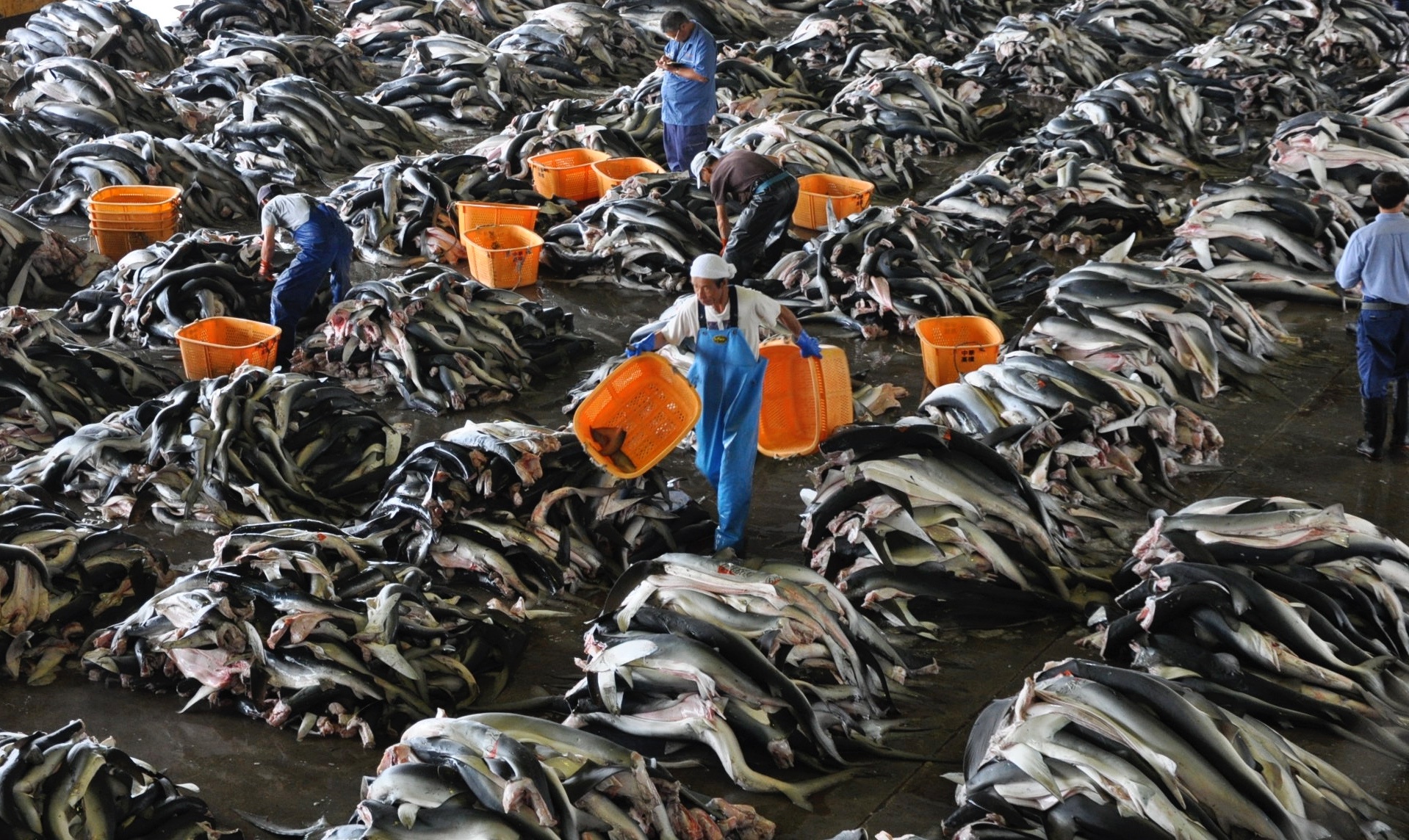Shark Meat is a Growing Market
Shark Fishing is on the Rise
While the shark fin trade is still the biggest offender when it comes to shark mortality, the market for shark meat is also of great concern. In areas where overfishing has decimated other fish populations, sharks are increasingly hunted for their meat. Oftentimes the meat by itself would not be worth enough to make shark fishing profitable if the fins weren't also sold. Fishing fleets from around the world supply Asian markets with fins, while the meat is being diverted along separate supply channels to meet demand in growing markets worldwide. In some cases, countries with stricter laws will land sharks, fully knowing that they cannot market the meat due to contamination levels. Instead, they pass the meat on to another country with less stringent standards.
To further complicate the issue, available data of imports and exports cover only a portion of what is actually cut and traded and how many sharks are killed. The species of sharks being traded are rarely identified in trade records, making it difficult to trace the sale of endangered species. Furthermore, sharks that are caught for subsistence and that are killed but not used for the meat market are often not recorded. This makes it difficult to know the true number of sharks killed annually and the actual size of the shark meat industry. It is a complex dynamic driven by a consumer market that may be ill informed and a commercial fishing industry that aims to stay in business by creating more demand for anything that comes from a shark.
And here is a further twisted part of the story of shark meat. When lawmakers tried to prevent the cruel act of finning by establishing laws to require fishermen to land sharks whole, to avoid shark being dumped at sea, the intention was to reduce shark catch and waste of sharks for the fin market. But rather than fixing the problem, the people targeting sharks for their fins simply adjusted their practices. Since they still wanted to sell fins, they brought the sharks intact to shore and processed them on land. In order to make it worth their while, there was a push to develop a greater demand for shark meat. This is a good example of the supply pushing the demand and is probably one of the driving factors that have caused an increase in shark meat being sold.
This is the perfect instance of why it is so critical to craft legislation that is effective. Loopholes must be avoided in laws that regulate or ban shark finning. The lessons have been learned, but at a great cost to shark populations. Outlawing the sale and trade of shark fins is currently the most effective way to go after the industry. Unless consumers completely stop buying shark fins and more protected areas are established, shark fin trade bans may be the only tool we have to make progress in addressing finning and the global fin trade.

